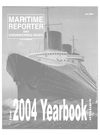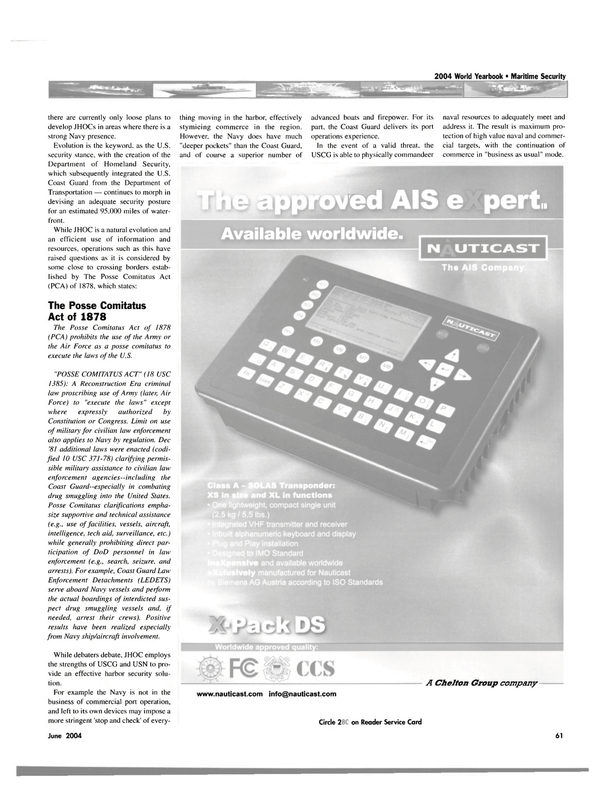
The Posse Comitatus Act of 1878
The Posse Comitatus Act of 1878 (PCA) prohibits the use of the Army or the Air Force as a posse comitatus to execute the laws of the U.S.
"POSSE COMITATUS ACT" (18 USC 1385): A Reconstruction Era criminal law proscribing use of Army (later, Air Force) to "execute the laws" except where expressly authorized by Constitution or Congress. Limit on use of military for civilian law enforcement also applies to Navy by regulation. Dec '81 additional laws were enacted (codified 10 USC 371-78) clarifying permissible military assistance to civilian law enforcement agencies--including the Coast Guard—especially in combating drug smuggling into the United States.
Posse Comitatus clarifications emphasize supportive and technical assistance (e.g., use of facilities, vessels, aircraft, intelligence, tech aid, surveillance, etc.) while generally prohibiting direct participation of DoD personnel in law enforcement (e.g., search, seizure, and arrests). For example, Coast Guard Law Enforcement Detachments (LEDETS) serve aboard Navy vessels and perform the actual boardings of interdicted suspect drug smuggling vessels and, if needed, arrest their crews). Positive results have been realized especially from Navy ship/aircraft involvement.
While debaters debate, JHOC employs the strengths of USCG and USN to provide an effective harbor security solution.
For example the Navy is not in the business of commercial port operation, and left to its own devices may impose a more stringent 'stop and check' of everything everything moving in the harbor, effectively stymieing commerce in the region.
However, the Navy does have much "deeper pockets" than the Coast Guard, and of course a superior number of advanced boats and firepower. For its part, the Coast Guard delivers its port operations experience.
In the event of a valid threat, the USCG is able to physically commandeer naval resources to adequately meet and address it. The result is maximum protection of high value naval and commercial targets, with the continuation of commerce in "business as usual" mode.
"While we are responsible for our ships and our Navy ports, the Coast Guard is in charge of the entire port of Hampton Roads," said Capt. Joseph F.
Bouchard, the commanding office or Naval Station Norfolk. "By working together we can accomplish more with the resources available to each agency.
We can track ships throughout the harbor.
It greatly extends our defensive perimeter. Now we can detect potential threats before they can become a problem off the naval station piers," he said.
Read The Posse Comitatus Act of 1878 in Pdf, Flash or Html5 edition of June 2004 Maritime Reporter
Other stories from June 2004 issue
Content
- New Joint Venture Tanker Company Sets Sail page: 9
- Crowley Refloats Stranded Passenger Ferry page: 10
- A Tradition Carried On page: 10
- EC: Spanish Shipyards Owe €308.3M page: 11
- Uljanik Delivers for Grimaldi-Napoli page: 12
- Washburn & Doughty delivers Independent page: 13
- Bollinger Repowers, Modifies 40-Year-Old Tug page: 14
- ACBL Announces Sweeping Changes page: 18
- Ocean Policy Study: Shortchanging Water Transport? page: 21
- Damen Delivers the Patrol Boat Valiant page: 25
- IZAR Christens LNG Ship page: 25
- Challenges facing IMO page: 26
- Flood Attracted to Water page: 30
- The Containership Market: Full Steam Ahead? page: 32
- Will Oil Continue Heading Up? page: 34
- Floating Production: The $8 Billion Market page: 36
- LNG Fleet Needs to Triple by 2020 page: 38
- New Free Fall Lifeboat Carries More People page: 41
- Wartsila to Power New DE Tanker page: 41
- Ice Tech: The Northern Promise page: 42
- New Era for Gas Engines page: 42
- Emulsion Breaking Bilge Water Cleaning System page: 44
- Balancing Security Safety and Commerce page: 46
- When the Clock Strikes Midnight page: 50
- The Layered Approach from a One-Stop-Shop page: 54
- JHOC: Eyes Wide Open page: 58
- The Posse Comitatus Act of 1878 page: 61
- Jacksonville Selects ObjectVideo's Solution page: 63
- Ship@Sight SSAS page: 63
- The Midas Touch page: 64
- Security and Safety: Questions & Answers page: 69
- Storm Warnings Raised over Readiness Concerns page: 70
- MACC 2004: Multi-Agency Craft Conference set for June 15-17 page: 76


